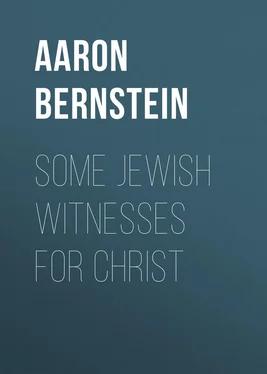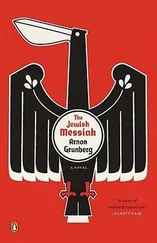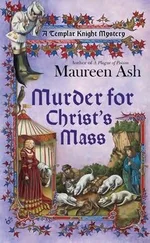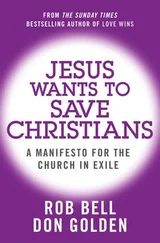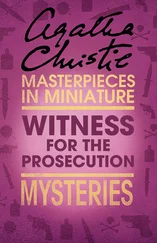Aaron Bernstein - Some Jewish Witnesses For Christ
Здесь есть возможность читать онлайн «Aaron Bernstein - Some Jewish Witnesses For Christ» — ознакомительный отрывок электронной книги совершенно бесплатно, а после прочтения отрывка купить полную версию. В некоторых случаях можно слушать аудио, скачать через торрент в формате fb2 и присутствует краткое содержание. Жанр: foreign_antique, foreign_prose, Биографии и Мемуары, на английском языке. Описание произведения, (предисловие) а так же отзывы посетителей доступны на портале библиотеки ЛибКат.
- Название:Some Jewish Witnesses For Christ
- Автор:
- Жанр:
- Год:неизвестен
- ISBN:нет данных
- Рейтинг книги:4 / 5. Голосов: 1
-
Избранное:Добавить в избранное
- Отзывы:
-
Ваша оценка:
- 80
- 1
- 2
- 3
- 4
- 5
Some Jewish Witnesses For Christ: краткое содержание, описание и аннотация
Предлагаем к чтению аннотацию, описание, краткое содержание или предисловие (зависит от того, что написал сам автор книги «Some Jewish Witnesses For Christ»). Если вы не нашли необходимую информацию о книге — напишите в комментариях, мы постараемся отыскать её.
Some Jewish Witnesses For Christ — читать онлайн ознакомительный отрывок
Ниже представлен текст книги, разбитый по страницам. Система сохранения места последней прочитанной страницы, позволяет с удобством читать онлайн бесплатно книгу «Some Jewish Witnesses For Christ», без необходимости каждый раз заново искать на чём Вы остановились. Поставьте закладку, и сможете в любой момент перейти на страницу, на которой закончили чтение.
Интервал:
Закладка:
There is an account of that conference in a parchment MS., consisting of 409 fols., in Sto. Lorenzo del Escorial, entitled, "Hieronymi de Santa Fide Medici Benedicti XIII. Processus rerum et tractuum et Europæ, Rabbinorum ex une parte, et Catholicorum ex alia, ad convicendos Judæos de adventu Messiæ." Contemporary Jewish writers are ominously silent about it. The story of Joshua Halorki is full of suggestive matter for serious thought for the Rabbis of modern synagogues, and for Christian ministers of modern churches.
John, of Valladolid, born 1335. An able speaker and acquainted with rabbinical literature, he persuaded King Henry of Castile that he could convince the Jews of the truth of Christianity if they were obliged to listen to him and to answer his questions. An order was accordingly issued, compelling the Jews to attend John's lectures in their synagogues and to discuss them with him. In company with another Jewish convert, John travelled throughout the Castilian provinces, lectured and debated in the synagogues, but with lack of success. At Avilla, he assembled the Jews four times and discussed with them the tenets of Christianity before numerous Christian and Moslem audiences. At Burgos, he summoned Moses ha Cohen, of Tordesillas, to a religious controversy in the presence of Archbishop Gomez, of Toledo, but he made no impression upon his opponent. Just because he was not content in bringing arguments from Scripture to prove Christian doctrines, but in imitation of the rabbinical method, he tried to base a doctrine on the form of a letter. Thus, for instance, he claimed that the final closed "mem" in the word לםרבה (Isa. ix. 6), is an allusion to the immaculate conception.
Levi Barach (Joseph Jean François Elie), born at Hagenau, Elssas, 1721, embraced Christianity in Paris, 1752. His wife refused to live with him, and he refused to divorce her according to Jewish law. He obtained from the Bishops of Verdun and Metz canonical opinions that a baptized Jew might marry a Christian if his wife refused to be converted with him.
Levi Ben Shem Job, Portuguese convert, lived at the end of the fifteenth century. He is identified by some scholars with a certain Antonio, who was chief surgeon of King John II., and who wrote a pamphlet entitled, "Ajudo da Fé Contra os Judaeos."
Mandl Christof, a Hungarian Jewish convert, baptized in 1534. His godfather was George, Margrave of Brandenburg, to whom Mandl dedicated his tract entitled, "Dass Jesus sey das Ewig Wort" (1536). He also wrote two other tracts on the "Seventy Weeks of Daniel," and "Jesus is the Messiah" (1552-7).
Margarita Antonius, son of Rabbi Jacob Margoliouth, of Regensburg, was baptized in 1552, at Wasserburg, Bavaria. He was teacher of Hebrew successively at Augsberg, Meissen, Zell, Leipzig, and Vienna, where he died. His book, "Der ganze Jüdische Glaub," &c., contained among some good things, many bad and foolish things, and caused much harm to the Jews and to the author himself. His work was variously received. Luther made use of it in his writings. It was praised by Hoornbeek, B. Luthenes, and Joseph Muller, while Wagenseil (who, as is well known, was not very partial to the Jews,) spoke of it less favourably. According to de le Roi he joined the Roman Church as a Protestant.
Medici Paulus, a Jewish convert of whom the Roman Catholic Church had reason to be proud, was a learned theologian and a skilful controversialist against modern Judaism. Of his numerous works may here be mentioned: 1. "Catalogo de Neofiti" ( illustri ), 1701. 2. "Promptuarium Biblicorum Textuum ad Catholicum Fidem confirmandam et Judaeorum informandam perfidiam" (1707). 3. "Dialoghi sacri supra il vechiv e Nouvo Testamento," 41 parts in 21 vols. (Venice, 1731-35). 4. "Riti e costumi degli Ebrei confutati" (Fifth edition, Venice, 1557). This work is partly supplementary and partly antagonistic to a similar work by the famous Jewish scholar, Leon de Modena.
Mendelson (Sorel) Mendelssohn, youngest daughter of Moses Mendelssohn the philosopher, joined the Church of Rome at the beginning of the eighteenth century. She is described as "a woman of broad interests, clear judgment, and exquisite manners."
Morasini Giulio (Samuel Ben Nahamias, Ben David, B. Isaac, B. David, Baal Teshubah) was born at Venice, 1612; died in 1687. He was descended from a wealthy family which traced its ancestry back to Nehemiah. In 1649 he was present at a disputation held in Venice between two Jews (one of whom was a convert), relating to the "Seventy Weeks of Daniel." He then, together with his brother Joseph, decided to embrace Christianity, and was baptized November 22 of the same year, his godfather being Angelo Morasini, whose name he took. He went to Rome under Alexander VII., intending to become a Capuchin monk, but was dissuaded by the Pope. Clement IX. appointed him Hebrew scrittore of the Vatican library, and he taught Hebrew in the Propaganda. He was the author of a work entitled, "Derek Emunah" (Way of Faith), Rome, 1683. It has as a frontispiece a portrait of the author at the age of seventy-two, and is preceded by a sketch of his life.
Nachman ben Samuel Halevi, Rabbi of Busk, Galicia. When Mikulski, the administrator of the Archbishopric of Lemberg, invited the representatives of Judaism to a disputation with the Frankists, July 16, 1759, he was one of the Frankist delegates. He afterwards became a Christian, and took the name of Pietr Jacobski (Gräetz x., 392).
Nola, Menahem (John Paul Eustatius), born about 1570, died at Rome about 1608. Having instructed Thomas Aldobrandino, brother of the Pope Clement VIII., in Hebrew, he was influenced by him to become a Christian, and was baptized in 1568. He was the author of several Italian works, mainly in defence of Christianity. "Sacro Settenario" (Naples, 1579) is a compilation of extracts from the Bible, with an explanation of the ceremony of the opening of the gates in the year of Jubilee. "Salutori Discorse" ( ib. 1582) contains nine sermons on various dogmas of Christianity, including those of the Trinity and the necessity for the coming of the Messiah. Some of Nola's works are found in the library of the Vatican, among them being commentaries, in manuscript, on Lamentations and Ruth. He wrote also a description of the Hebrew manuscripts in that library.
Nunez, Henrique Judae, Portuguese convert, born in Borba, Portugal, died in 1524. It is asserted that he acted as a spy against his people, and in consequence was stabbed by two Maranos, disguised as monks. He had received the appellation of Firme Fé, was revered as a saint, and people ascribed marvellous healing power to his tomb.
Vettinger, Edward Maria, born at Breslau, 1808, died at Blaseritz, near Dresden, 1872. In 1828 he embraced Christianity. He wrote many works, comprising novels, poems, satires, historical and biographical writings, a complete list of which may be found in the "Moniteur des Dates," vi., 83, Dresden, 1868. This work may be mentioned here in particular. It gives short biographical notes of important men (over 1,000,000 in number) from the dawn of history to the date of the completion of the book, including living persons.
Paul de Burgos, called also Santa Maria. His Jewish name was Solomon ha Levi; born at Burgos 1350, died in 1435. He was the wealthiest and most prominent Jew of the city, and was thoroughly conversant with the Talmud and rabbinical literature, and up to his fortieth year he officiated as Rabbi of Burgos. His scholarship and intelligence, as well as his piety, won the praise of Isaac ben Sheshet. Abrabanel, in his Commentary on Isa. xxxiv., calls him a wise man. He embraced Christianity in 1370, in his native place, after having studied diligently the O. T., especially Jer. xxxi., the N. T. and the works of Thomas Aquinas. He said later, Paulus me ad fidem convertit . His mother and his children were baptized with him, but not his wife, who refused, yet was later reconciled to him and also baptized. After finishing his theological studies at Paris, he was ordained and appointed Archdeacon of Trevino, and in 1402 became Bishop of Carthagena. Subsequently he became a member of the regency of Castile and Archbishop of Burgos. He wrote "Dialogus Pauli et Sauli Contra Judæos sive Sive Scrutinium Scripturarum," but his principal work (in 1427) is "Additiones," which consists of addenda and emendations to Nicolas de Lyra's Postiles on the Bible; also, in his old age, he composed a "Historia Universal" in Spanish verse. As Jewish writers assert that ambition and vanity were the motives of his conversion, I give a short extract from his testament to his son, in order that the reader may judge whether this charge is justified: "What wouldest thou, my dearly beloved son, like best that I should give thee while I am still alive, or leave for thee when I die? What better thing could it be than the extension of that knowledge which thou hast already gained from the Holy Scriptures, and which will strengthen thy well-ordered zeal for the Christian truth?" He then quotes Isa. xxxviii. 19: "The father to the children shall make known Thy truth," and continues: "I was not learned in my youth, but educated in Jewish blindness and unbelief. While I learned to know the Holy Scriptures from unholy teachers, I received the opinions of erring men who obscured the pure letter of the Scriptures with impure devices. But it pleased Him whose mercy is infinite to call me out of darkness to light and out of the pit into the pure air of heaven; so that it appeared to me as if scales fell from the eyes of my understanding. I began to seek the truth, and to trust no more in myself, and so with a humble spirit I prayed to God to shew me what appertained to the salvation of my soul. Day and night I sought help from Him, and so it happened that my love for the Christian truth increased, and finally I received strength publicly to confess the faith which was already in my heart." Then after telling his son how God had blessed him in raising him to a high position of usefulness and dignity in the church, and that he had been on intimate terms with King Henry III. and chancellor of his son, the Regent of Spain, he intimates to him that, with all this, he had not accumulated any worldly wealth. Unum est quod silentio committere non possumus nobis ex Levitico sanguine descendentibus. "One circumstance which I cannot pass over in silence is this: that we are descendants of Levi, and the promises which were given many centuries ago have been fulfilled – 'Wherefore Levi hath no part nor inheritance with his brethren, the Lord is his inheritance according as the Lord thy God promised him' (Deut. x. 9). Truly God Himself is our inheritance. Christ is our portion. This, my dearly beloved son, is my testament for thee, and let it also be thine inheritance, that the Law of the Lord may be thy joy, and that thou shouldest meditate upon His Word day and night."
Читать дальшеИнтервал:
Закладка:
Похожие книги на «Some Jewish Witnesses For Christ»
Представляем Вашему вниманию похожие книги на «Some Jewish Witnesses For Christ» списком для выбора. Мы отобрали схожую по названию и смыслу литературу в надежде предоставить читателям больше вариантов отыскать новые, интересные, ещё непрочитанные произведения.
Обсуждение, отзывы о книге «Some Jewish Witnesses For Christ» и просто собственные мнения читателей. Оставьте ваши комментарии, напишите, что Вы думаете о произведении, его смысле или главных героях. Укажите что конкретно понравилось, а что нет, и почему Вы так считаете.
